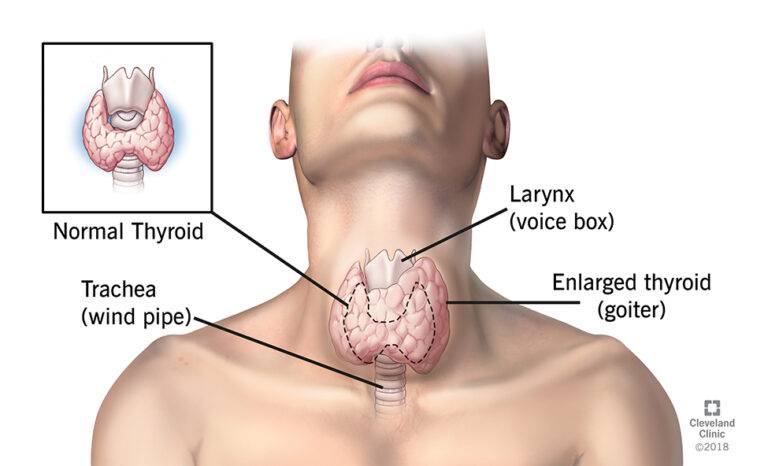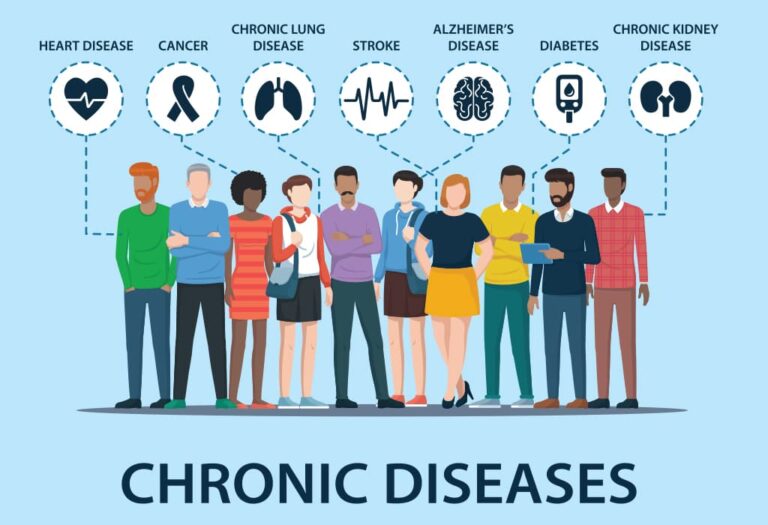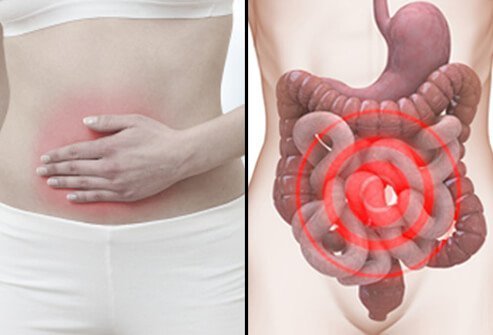Overcoming Hypothyroidism(Underactive Thyroid)
Author: Giselle Robel
Giselle Robel
Category: Health
Tags: health, hypothyroidism, thyroid

Hypothyroidism (underactive thyroid) is a condition in which your thyroid gland doesn’t produce enough of certain crucial hormones.
Hypothyroidism may not cause noticeable symptoms in the early stages. Over time, untreated hypothyroidism can cause a number of health problems, such as obesity, joint pain, infertility, and heart disease.
Accurate thyroid function tests are available to diagnose hypothyroidism. Treatment with synthetic thyroid hormone is usually simple, safe, and effective once you and your doctor find the right dose for you.
Hypothyroidism is a common condition where the thyroid doesn't create and release enough thyroid hormone into your bloodstream. This makes your metabolism slow down. Also called underactive thyroid, hypothyroidism can make you feel tired, gain weight and be unable to tolerate cold temperatures. The main treatment for hypothyroidism is hormone replacement therapy.
What is hypothyroidism?
Hypothyroidism is a condition where there isn't enough thyroid hormone in your bloodstream and your metabolism slows down.
Hypothyroidism happens when your thyroid doesn't create and release enough thyroid hormone in your body. This makes your metabolism slow down, affecting your entire body. Also known as underactive thyroid disease, hypothyroidism is fairly common.
When your thyroid levels are extremely low, this is called myxedema. A very serious condition, myxedema can cause serious symptoms, including the following:
- A low body temperature.
- Anemia.
- Heart failure.
- Confusion.
- Coma.
This severe type of hypothyroidism is life-threatening.
In general, hypothyroidism is a very treatable condition.

How does my thyroid work?
The thyroid gland is a small, butterfly-shaped organ located in the front of your neck just below the voice box (larynx). Picture the middle of the butterfly's body centered on your neck, with the wings hugging around your windpipe (trachea). The main job of the thyroid is to control your metabolism. Metabolism is the process that your body uses to transform food into energy your body uses to function. The thyroid creates the hormones T4 and T3 to control your metabolism. These hormones work throughout the body to tell the body's cells how much energy to use. They control your body temperature and heart rate.
More about Thyroid
When your thyroid works correctly, it's constantly making hormones, releasing them, and then making new hormones to replace what's been used. This keeps your metabolism functioning and all of your body's systems in check. The amount of thyroid hormones in the bloodstream is controlled by the pituitary gland, which is located in the center of the skull below the brain. When the pituitary gland senses either a lack of thyroid hormone or too much, it adjusts its own hormone (thyroid-stimulating hormone, or TSH) and sends it to the thyroid to balance out the amounts.
If the amount of thyroid hormones is too high (hyperthyroidism) or too low (hypothyroidism), the entire body is impacted.
Symptoms
The signs and symptoms of hypothyroidism vary, depending on the severity of the hormone deficiency. Problems tend to develop slowly, often over a number of years.
At first, you may barely notice the symptoms of hypothyroidism, such as fatigue and weight gain. Or you may simply attribute them to getting older. But as your metabolism continues to slow, you may develop more obvious problems.
Hypothyroidism signs and symptoms may include:
- Fatigue
- Increased sensitivity to cold
- Constipation
- Dry skin
- Weight gain
- Puffy face
- Hoarseness
- Muscle weakness
- Elevated blood cholesterol level
- Muscle aches, tenderness and stiffness
- Pain, stiffness or swelling in your joints
- Heavier than normal or irregular menstrual periods
- Thinning hair
- Slowed heart rate
- Depression
- Impaired memory
- Enlarged thyroid gland (goiter)
Hypothyroidism in infants
Although hypothyroidism most often affects middle-aged and older women, anyone can develop the condition, including infants. Initially, babies born without a thyroid gland or with a gland that doesn’t work properly may have few signs and symptoms. When newborns do have problems with hypothyroidism, the problems may include:
- Yellowing of the skin and whites of the eyes (jaundice). In most cases, this occurs when a baby’s liver can’t metabolize a substance called bilirubin, which normally forms when the body recycles old or damaged red blood cells.
- A large, protruding tongue.
- Difficulty breathing.
- Hoarse crying.
- An umbilical hernia.
As the disease progresses, infants are likely to have trouble feeding and may fail to grow and develop normally. They may also have:
- Constipation
- Poor muscle tone
- Excessive sleepiness
When hypothyroidism in infants isn’t treated, even mild cases can lead to severe physical and mental retardation.
Hypothyroidism in children and teens
In general, children and teens who develop hypothyroidism have the same signs and symptoms as adults do, but they may also experience:
- Poor growth, resulting in short stature
- Delayed development of permanent teeth
- Delayed puberty
- Poor mental development
What's the difference between hypothyroidism and hyperthyroidism?
In hypothyroidism, the thyroid doesn't make enough thyroid hormone.
The difference between hypothyroidism and hyperthyroidism is quantity. In hypothyroidism, the thyroid makes very little thyroid hormone. On the flip side, someone with hyperthyroidism has a thyroid that makes too much thyroid hormone. Hyperthyroidism involves higher levels of thyroid hormones, which makes your metabolism speed up. If you have hypothyroidism, your metabolism slows down.
Many things are the opposition between these two conditions. If you have hypothyroidism, you may have a difficult time dealing with the cold. Whereas, if you have hyperthyroidism, you may not handle the heat. They are opposite extremes of thyroid function. Ideally, you should be in the middle. Treatments for both of these conditions work to get your thyroid function as close to that middle ground as possible.
Causes
There can be a number of causes, including autoimmune disease, hyperthyroidism treatments, radiation therapy, thyroid surgery, and certain medications.
Your thyroid is a small, butterfly-shaped gland situated at the base of the front of your neck, just below your Adam’s apple. Hormones produced by the thyroid gland triiodothyronine (T3) and thyroxine (T4) have an enormous impact on your health, affecting all aspects of your metabolism. These hormones also influence the control of vital functions, such as body temperature and heart rate.
Other Causes
Hypothyroidism results when the thyroid gland fails to produce enough hormones. Hypothyroidism may be due to a number of factors, including:
- Autoimmune disease – The most common cause of hypothyroidism is an autoimmune disorder known as Hashimoto’s thyroiditis. Autoimmune disorders occur when your immune system produces antibodies that attack your own tissues. Sometimes this process involves your thyroid gland.Scientists aren’t sure why this happens, but it’s likely a combination of factors, such as your genes and an environmental trigger. However it happens, these antibodies affect the thyroid’s ability to produce hormones.
- Over-response to hyperthyroidism treatment – People who produce too much thyroid hormone (hyperthyroidism) are often treated with radioactive iodine or anti-thyroid medications. The goal of these treatments is to get thyroid function back to normal. But sometimes, correcting hyperthyroidism can end up lowering thyroid hormone production too much, resulting in permanent hypothyroidism.
- Thyroid surgery – Removing all or a large portion of your thyroid gland can diminish or halt hormone production. In that case, you’ll need to take thyroid hormone for life.
- Radiation therapy – Radiation used to treat cancers of the head and neck can affect your thyroid gland and may lead to hypothyroidism.
- Medications – A number of medications can contribute to hypothyroidism. One of those medications is lithium, which is used to treat certain psychiatric disorders. However, before taking medication, ask your doctor about its effect on your thyroid gland.
Additional Causes
Less often, hypothyroidism may result from one of the following:
- Congenital disease. Some babies are born with a defective thyroid gland or no thyroid gland. In most cases, the thyroid gland didn’t develop normally for unknown reasons, but some children have an inherited form of the disorder. Often, infants with congenital hypothyroidism appear normal at birth. That’s one reason why most states now require newborn thyroid screening.
- Pituitary disorder. A relatively rare cause of hypothyroidism is the failure of the pituitary gland to produce enough thyroid-stimulating hormone (TSH) usually because of a benign tumor of the pituitary gland.
- Pregnancy. Some women develop hypothyroidism during or after pregnancy (postpartum hypothyroidism), often because they produce antibodies to their own thyroid gland. Left untreated, hypothyroidism increases the risk of miscarriage, premature delivery and preeclampsia a condition that causes a significant rise in a woman’s blood pressure during the last three months of pregnancy. It can also seriously affect the developing fetus.
- Iodine deficiency. The trace mineral iodine found primarily in seafood, seaweed, plants grown in iodine-rich soil and iodized salt is essential for the production of thyroid hormones. Too little iodine can lead to hypothyroidism, and too much iodine can worsen hypothyroidism in people who already have the condition. In some parts of the world, iodine deficiency is common, but the addition of iodine to table salt has virtually eliminated this problem in the United States.
How is hypothyroidism treated?
In most cases, hypothyroidism is treated by replacing the amount of hormone that your thyroid is no longer making. This is typically done with medication. One medication that is commonly used is called levothyroxine. Taken orally, this medication increases the amount of thyroid hormone your body produces, evening out your levels.
Hypothyroidism is a manageable disease. However, you will need to continually take medication to normalize the number of hormones in your body for the rest of your life. With careful management and follow-up appointments with your healthcare provider to make sure your treatment is working properly, you can lead a normal and healthy life.
What happens if hypothyroidism is not treated?
Hypothyroidism can become a serious and life-threatening medical condition if you do not get treatment from a healthcare provider. If you are not treated, your symptoms can become more severe and can include:
- Developing mental health problems.
- Having trouble breathing.
- Not being able to maintain a normal body temperature.
- Having heart problems.
- Developing a goiter (enlargement of the thyroid gland).
You can also develop a serious medical condition called myxedema coma. This can happen when hypothyroidism isn't treated.
Can hypothyroidism be prevented?
Although, hypothyroidism cannot be prevented. The best way to prevent developing a serious form of the condition or having the symptoms impact your life in a serious way is to watch for signs of hypothyroidism. However, if you experience any of the symptoms of hypothyroidism, the best thing to do is talk to your healthcare provider. Hypothyroidism is very manageable if you catch it early and begin treatment.
Are there any foods I can eat to help my hypothyroidism?

Most foods in western diets contain iodine, so you do not have to worry about your diet. Iodine is a mineral that helps your thyroid produce hormones. One idea is that if you have low levels of thyroid hormone, eating foods rich in iodine could help increase your hormone levels. The most reliable way to increase your hormone levels is with prescription medication from your healthcare provider. Do not try any new diets without talking to your health provider first. It's important to always have a conversation before starting a new diet, especially if you have a medical condition like hypothyroidism.
Foods that are high in Iodine are the following:
- Eggs.
- Dairy products.
- Meat, poultry and seafood.
- Edible seaweed.
- Iodized salt.
Work with your health care provider or a nutritionist (a healthcare provider who specializes in food) to craft a meal plan. Your food is your fuel. Making sure you eat foods that will help your body, along with taking your medications as instructed by your healthcare provider, can keep you healthy over time. People with a thyroid condition should not consume large amounts of iodine because the effect may be paradoxical (self-contradictory).
Risk factors
Although anyone can develop hypothyroidism, you’re at an increased risk if you:
- Are a woman
- Are older than 60
- A family history of thyroid disease
- Have an autoimmune disease, such as type 1 diabetes or celiac disease
- Have been treated with radioactive iodine or anti-thyroid medications
- Received radiation to your neck or upper chest
- Have had thyroid surgery (partial thyroidectomy)
- Have been pregnant or delivered a baby within the past six months
Complications
Untreated hypothyroidism can lead to a number of health problems such as:
- Goiter – Constant stimulation of your thyroid to release more hormones may cause the gland to become larger a condition known as a goiter. Although generally not uncomfortable, a large goiter can affect your appearance and may interfere with swallowing or breathing.
- Heart problems – Hypothyroidism may also be associated with an increased risk of heart disease and heart failure, primarily because high levels of low-density lipoprotein (LDL) cholesterol the “bad” cholesterol can occur in people with an underactive thyroid.
- Mental health issue s – Depression may occur early in hypothyroidism and may become more severe over time. Hypothyroidism can also cause slowed mental functioning.
More Complication
- Peripheral neuropathy – However, long-term uncontrolled hypothyroidism can cause damage to your peripheral nerves. These are the nerves that carry information from your brain and spinal cord to the rest of your body for example, your arms and legs. In addition, peripheral neuropathy may cause pain, numbness and tingling in affected areas.
- Myxedema – Is also a rare, and life-threatening condition that resulted of long-term, undiagnosed hypothyroidism. Moreover, one of its signs and symptoms include intense cold intolerance and drowsiness followed by profound lethargy and unconsciousness. A myxedema coma may be triggered by sedatives, infection or other stress on your body. If you have signs or symptoms of myxedema, you need immediate emergency medical treatment.
- Infertility – Low levels of thyroid hormone can interfere with ovulation, which impairs fertility. In addition, some of the causes of hypothyroidism such as autoimmune disorder can also impair fertility.
- Birth defects – Babies born to women with untreated thyroid disease may have a higher risk of birth defects compared to babies born to healthy mothers. These children are also more prone to serious intellectual and developmental problems.Infants with untreated hypothyroidism present at birth are at risk of serious problems with both physical and mental development. But if this condition is diagnosed within the first few months of life, the chances of normal development are excellent.













